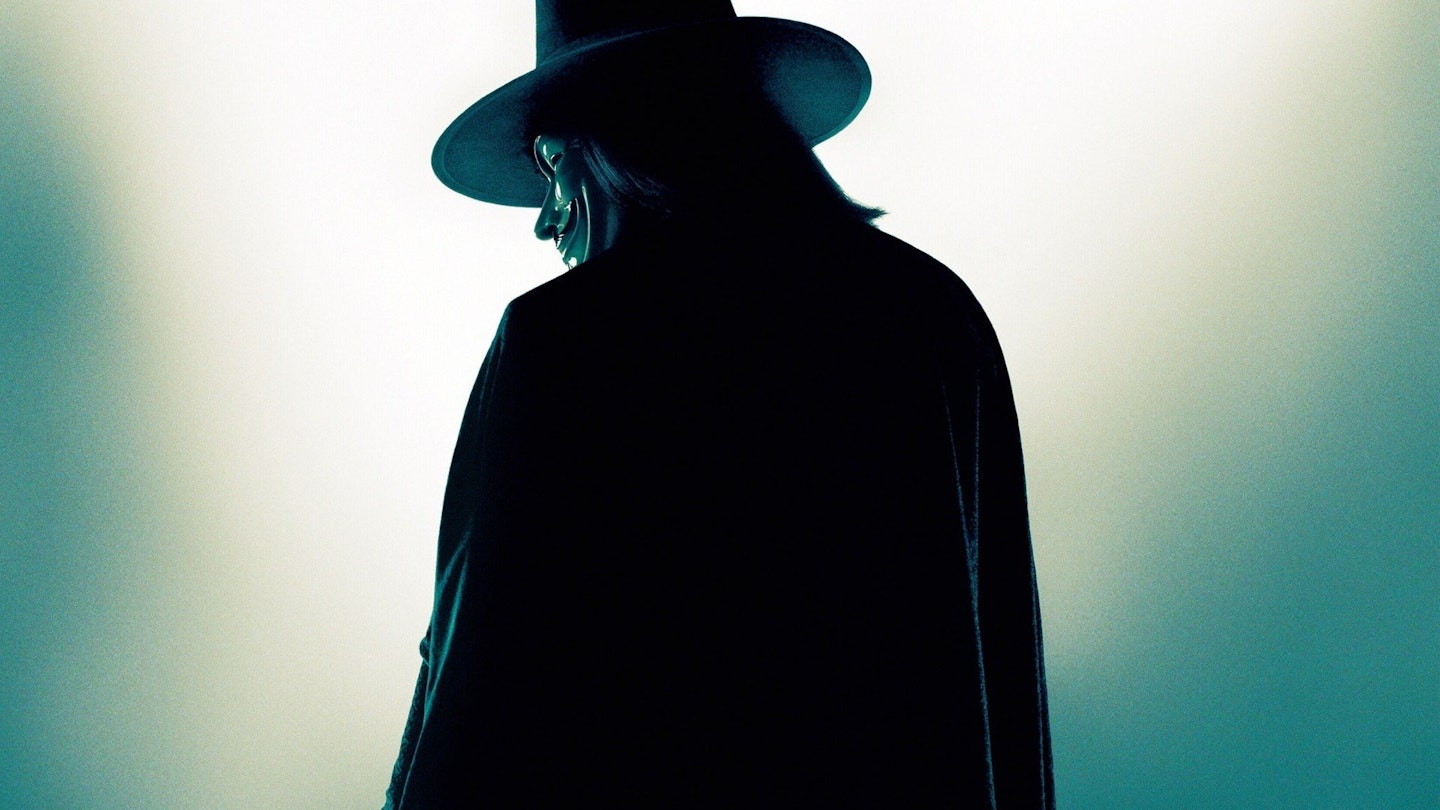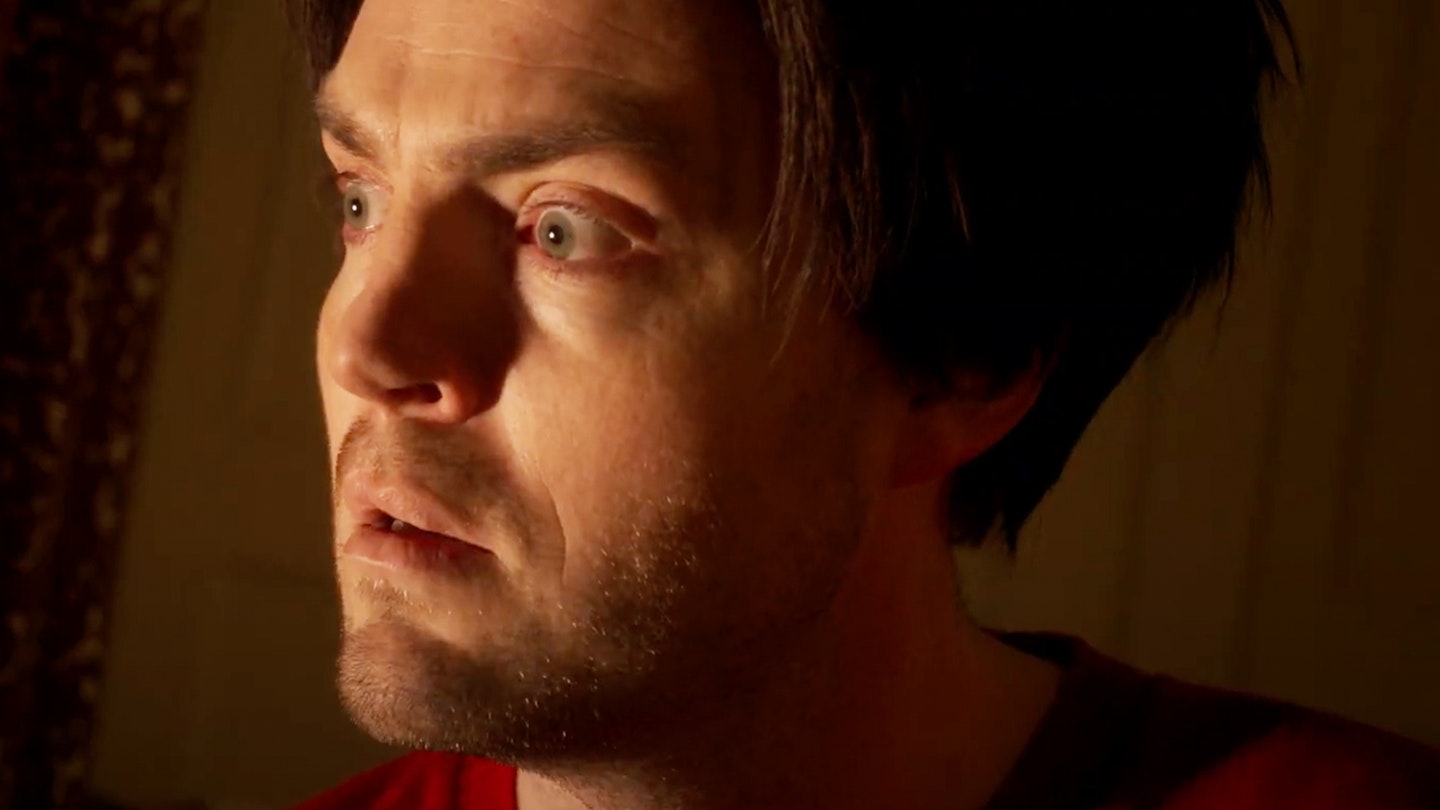Graphic novelist Alan Moore hasn’t had much luck with the movie adaptations of his work: The League Of Extraordinary Gentlemen was downright risible and From Hell deeply so-so, while Watchmen — Moore’s masterpiece — has stalled, spluttering somewhere in the pre-production netherworld. Or rather, it’s fans of Alan Moore who haven’t had much luck with movie adaptations of his work. The man himself has given up caring, and is so uninterested in this take on his ’80s serial
V For Vendetta that he declined any involvement and ordered his name off the credits. The irony being, this is the best Moore-to-big-screen translation yet.
Which does sound horribly like faint praise. But what marks V out from its Moore-ish predecessors is that it’s been far less compromised by bottom-line concerns.
So much so that the result is decidedly uncommercial. Despite the trailer’s promise of slo-mo action scenes with swooshing knives pirouetting through the air while bullet casings bounce artfully off concrete, this is no teen-pleasing slam-banger. Rather it’s a very talky, deliberately paced political thriller; yes, V is handy with a stiletto, but said scenes occupy fewer than five minutes of screen time, while his preferred method of assassination is lethal injection; no need to draft in Yuen Wo-Ping to assist with that.
We have a protagonist whose face — eyes included — is hidden beneath an inexpressive Guy Fawkes mask throughout and who packs his lengthy monologues with as many multi-syllabled words as possible. We have a leading lady who spends half the film with an unflattering skinhead. And we have a plot which makes a hero of a man who wears bomb-belts and makes his political points turning major landmarks into fireworks displays.
That all these landmarks are found in London arguably makes V For Vendetta an even trickier sell in the UK. One sequence involves a tube train carriage packed with explosives… That’s not going to go down well with a fair chunk of British cinemagoers. Yet we shouldn’t get too hot under the collar, as all this is taking place in a nightmare UK of the future — a Daily Mail heaven of a nation, if you like: God-fearing, racially ‘pure’ and purged of all its sexual ‘deviants’. In Moore’s comics, this society was a post-apocalyptic reflection of Thatcher’s Britain, Moore’s way of launching a simplistic left-wing attack on the then-seemingly unyielding Conservative power-grip. In his world, the only justifiable response was that of an enlightened anarchist, a Fawkes for the modern era. Moore’s V For Vendetta, Moore’s politics, were firmly rooted in the ’80s (where the writer obviously wants them to stay).
The Wachowskis’ version is post-9/11 and proud of it. Their Britain is portrayed as a potential end-point for the current reactionary trend towards the restriction of personal liberty and for the Western media’s fear-frenzy; avian flu and anti-Muslim sentiment are both mentioned while, crucially, V is never referred to as an anarchist, only as a terrorist. Still, the Fawkes parallels are played up (a prologue outlining the Gunpowder Plot has been included for the benefit of American audiences) and the brothers remain respectful of the material they’re playing with; indeed, the comic’s most powerful episode — we don’t want to give it away; suffice to say it involves Natalie Portman’s Alien3 ’do — survives largely intact, providing one of the heftiest gut-punches you’ll see in a movie this year.
Yet the film does have its problems. Debut helmer James McTeigue (former first assistant director to the Wachowskis and George Lucas) doesn’t quite recapture the grimy, neo-Dickensian feel that characterised the comic, his future Britain largely looking rather plain and everyday — perhaps the point, but it leaves the picture feeling somewhat bereft of style. And while physically good casting for Evey, the doe-eyed innocent who has to conquer her fears just as the populace should to overwhelm their oppressors, Portman’s accent flounders, trembling painfully at every vowel enunciation.
Opposite her, though, Hugo Weaving proves compelling as V, even if his performance is largely vocal. He has some clumsy moments to deal with (V’s overly alliterative entrance speech is a dire scripting mis-step), but he overcomes them to make this borderline psychotic vigilante a memorable and unsettlingly charismatic anti-hero. Alan Moore may be snubbing Weaving’s vicious cabaret, but that doesn’t mean everyone else should.







